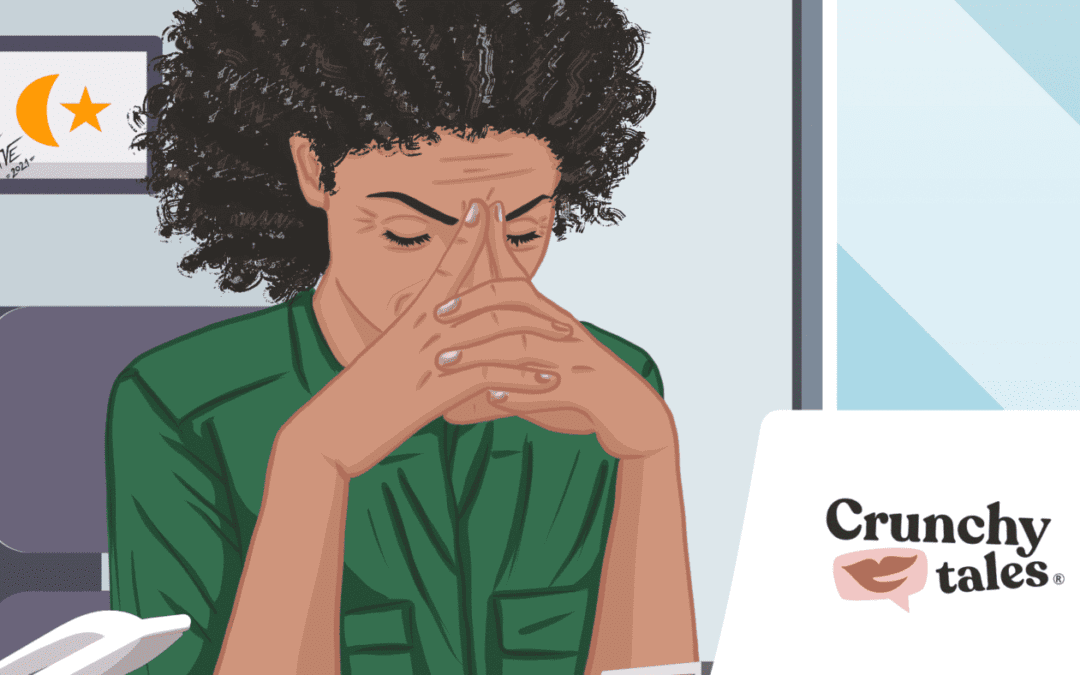You’re standing in a room and have no idea why you’re there. Your errant chin hairs could poke someone’s eye out. Sleeping through the night is as elusive a concept as buttoning your pre-menopause pants.
If any of these statements rings a bell, there should be little mystery as to why midlife brings with it an unwelcome uptick in fear and anxiety. And while research shows that all adults experience a dip in their sense of well-being between the ages of 40 and 50, women in midlife face the added physiological effects of changing hormonal levels that wreak havoc on sleep, mood, and waistline.
Let’s face it: Feeling good isn’t easy when your skin is hot and clammy half the time.
Toss in the emotional challenges inherent in empty nesting, caring for ageing parents, navigating personal health-related concerns, career changes, retirement or even divorce—and you have a potpourri of stressors that could leave you breathing into a paper bag. All of this against the backdrop of a society obsessed with combatting the signs of ageing. No wonder we’ve coined the phrase “midlife crisis” to describe this wonky time of life.
But midlife, with all its foibles, can offer a golden opportunity to reassess and build a path of personal growth.
According to researcher and author Brené Brown: “People may call what happens at midlife ‘a crisis,’ but it’s not. It’s an unravelling – a time when you feel a desperate pull to live the life you want to live, not the one you’re ‘supposed’ to live. The unravelling is a time when you are challenged by the universe to let go of who you think you are supposed to be and to embrace who you are”.
Challenging your limiting beliefs
If we shift our mindset from one that screams, “Why is this happening to me?” to “How can I embrace this time and make a positive change for myself,” surprising things can happen. The point is not to dismiss the issues we face during midlife – because they are very real indeed – but to challenge those limiting beliefs that may be adding insult to injury.
If that feels like too much of a leap, start by validating your own feelings and struggles. Stuffing down fearful and anxious thoughts is not a sustainable strategy, and certainly does not eliminate the limiting thoughts that go along with them. In fact, trying to ignore the discomfort can end up giving it more traction.
Try these steps for navigating the increased fear and anxiety associated with midlife:
- Write
Jot down thoughts and fears that are bubbling up. For each one, note how you would prefer to feel along with some potential ways to reach those goals. Embracing discomfort is an important first step in honouring and validating feelings, and envisioning change will shift you into a mindset of intention and purpose—more empowering than the victim mindset often triggered by fear-based thoughts. It’s important to understand that while feelings are out of your control, the thoughts associated with them are choices you make. With patience and practice, you can make different choices that serve you better. - Talk
Struggling alone with fear and anxiety can be daunting. Lean on trusted friends and family for support by sharing your experience (a 2012 study showed that women with friends have a greater sense of well-being than those who don’t). If the idea of opening up to friends makes you comfortable or sheepish, you can also talk to your doctor and/or find a therapist to help you using cognitive behavioural therapy or other treatment modalities. - Move
The benefits of exercise on the body and mind are irrefutable, both for physical and emotional health. If you can do it outside, even better—research shows that just a few minutes spent outdoors each day can bolster mood and outlook. Even during the busiest of days, we can find time for a 20-minute walk. Give your brain and body a chance to reset by unplugging from technology and tuning into your surroundings. Take in the small details of nature such as sounds, colours, and smells. If in a city, focus on the sounds of traffic or people talking. Notice textures, shapes, and architecture. - Eat Well
Don’t think for a minute that what you eat doesn’t make a difference. Obviously, fueling your body with high-quality protein and leafy greens is essential, but it goes deeper than that. According to integrative dietitian and bestselling author Esther Blum, food is a powerful medicine that can eliminate the need for medication, reverse chronic illness: “Our bodies have the wisdom to heal when given the right tools to do so.” Educate yourself on what your body needs and how hormonal shifts may be affecting nutrient absorption. - Do New Things
Challenging yourself with new experiences can keep you feeling energized, vital, and relevant. Learning a new language, starting a business, experimenting with new hobbies can keep your brain engaged and spark neurogenesis.
Originally published in Crunchy Tales on May 24, 2021


Recent Comments